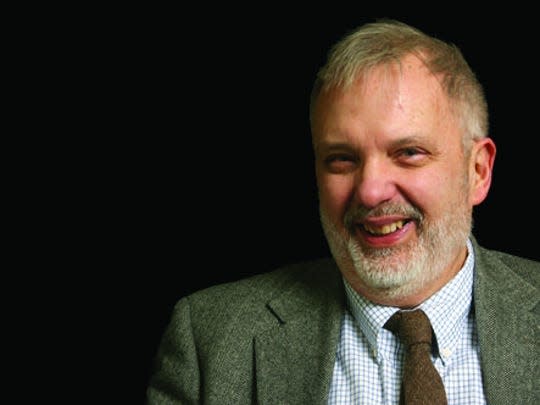A man who understood leading in war and peace

After Ukrainian President Volodymyr Zelensky’s famous response in the early days of the Ukrainian-Russian war, “I don’t need a ride, I need more ammunition,” and his subsequent speeches and actions, I have become convinced that we need to learn more about particularly brave individuals who can navigate both war and peace. The question is, what makes someone like Zelensky?
What makes individuals who personally put themselves in harm’s way yet are able to provide leadership in times of war and peace?
What made George Washington, a young fighter in the French and Indian Wars, be later able to command our army in our war of independence, then lead our nation, and then even turn down being some form of king for life?
Another example is a man who helped transform a colonial possession into a modern country — Emilio Aguinaldo of the Philippines. Like George Washington, and the man who is the major focus of this column, he was born into the elite of his day, in his case of a city. As a revolutionary, Aguinaldo personally led the fight against the Spanish and then the Americans, but to my understanding, ultimately became recognized as a peaceful hero of his country. What made President Aguinaldo?
In the pursuit of finding answers to such questions, I have recently begun a study of another of our national heroes. I am reading “The Autobiography of Theodore Roosevelt,” first published by Charles Scribner’s Sons in 1920.
This was the great hunter who in 1902 was unsuccessful in a bear hunt and was immediately thereafter offered the opportunity to shoot a bear tied to a tree. He refused, and from that incident the Teddy Bear was “born.”
This was the President who in 1906 won the Nobel Peace prize for his role in brokering the Treaty of Portsmouth ending the Russo-Japanese war. With some significant parallels with today’s conflict between the massive Russian Federation and Ukraine, negotiations were tough in 1905 as Japan was relatively weak and facing western prejudice. Another parallel is to today’s struggle over that same East Asia region of the world, with China now as a major disruptive player. Teddy’s negotiation skills helped the United States become a diplomatic world power. Who will step up today?
However, this was also the man with extraordinary courage on the first of July 1898 in Cuba, when as noted in his Medal of Honor citation, “Lt. Colonel Roosevelt, in total disregard for his personal safety, and accompanied by only four or five men, led a desperate and gallant charge up San Juan Hill, encouraging his troops to continue the assault through withering enemy fire over open countryside.”
This man is the only person to be awarded both the Medal of Honor and the Nobel Peace Prize.
His autobiography is filled with stories of his days on our western frontier when it was still in its last days being a frontier. Yet, through its pages his book of self-reflection shows that Teddy Roosevelt, while a man who grew up with privilege — “noblesse oblige,” imposing a duty on those of privilege to act in a responsible manner with a duty to those not bestowed with such privilege — was very much an ordinary man who through force of character did extraordinary feats and transformed himself, his nation and the world.
His heroics on San Juan Hill, leading his Rough Riders out front and fully exposed to the danger, is an action that I don’t believe any American President in my lifetime has duplicated.
Yet, even more importantly, many of us, myself included, can personally identify at least in part with his words that “I was a sickly, delicate boy, suffered much from asthma….”
His autobiography details how that sickly boy became a living example of a physically and emotionally healthy man, and thus in my mind an implicit challenge to today’s popular definition of privilege, too often limited to merely skin color. His birth into privilege was most critically of the family sort.
He writes of his father that he was “the best man I ever knew. He combined strength and courage with gentleness, tenderness and great unselfishness…As we grew older he made us understand that the same standard of clean living was demanded for the boys as for the girls; that what was wrong in a woman could not be right in a man…we children adored him…Morning prayers were with my father.”
That’s real privilege.
Expanding beyond his formative years, I plan to write more in the future about how his exploits as a cowboy, as a police commissioner for New York City, as well as his later adventures in Cuba, as governor of New York, and as President, can be helpful to us today.
Luckily, we have the memorable performance by Robin Williams in the movie “Night at the Museum” to remember the man on horseback asking the question: “What are you made of?”
Contact Larry Little at larrylittle46@gmail.com.
This article originally appeared on Kitsap Sun: Teddy Roosevelt an example of leading in war and peace
